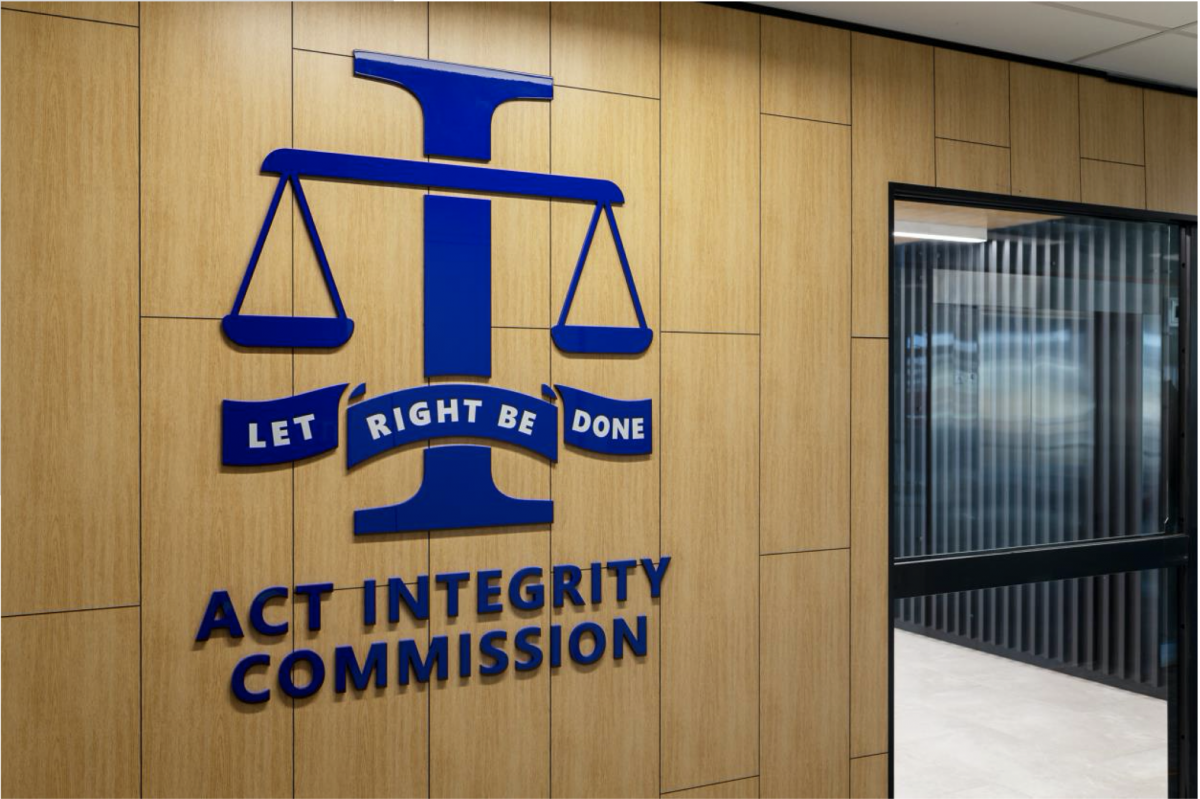
The ACT Integrity Commission might soon have the power to tap phones. Photo: Supplied.
The ACT’s Integrity Commissioner doesn’t currently have the power to intercept or ‘tap’ phone calls, but that’s about to change.
Chief Minister Andrew Barr has already written to the Commonwealth Attorney-General to kickstart a lengthy process that will eventually allow the Integrity Commission to acquire telecommunications data.
There’s no clear timeline as to when this might happen.
Phone-tap, or telecommunications interception powers, have been at the top of Integrity Commissioner Michael Adams KC’s wishlist for years.
“We are using conventional tools, but I need [telecommunication interception powers] as soon as I can get them,” he said.
He made similar comments in last year’s estimates hearings.

ACT Integrity Commissioner Michael Adams told budget estimates hearing in August he needed phone-tap powers for ongoing investigations. Photo: IPCC.
Mr Adams explained that phone-tap powers would be used when you had good reason to believe people were communicating about relevant matters.
“You are just completely excluded from vision of those communications without TI [telephone intercept powers]; there is just no other way to do it,” he said.
“It is a source of evidence I cannot get my hands on. The AFP does this every day.”
Mr Adams said the Australian Federal Police told Mr Adams that they had material that might be of interest, but the commission was not allowed to access it due to Commonwealth law.
In estimates hearings in late August, Mr Adams said he was still awaiting a meeting with Mr Barr.
A spokesperson for the government confirmed this meeting has now taken place but the process of getting the phone-tap powers is lengthy.
The Commonwealth Government must first declare the Commission a Criminal Law Enforcement Agency (CLEA) under its Telecommunications (Interception and Access) Act.
Once declared, the commission will have “additional powers to investigate allegations of serious corrupt conduct and systemic corrupt conduct”, an ACT Government spokesperson said.
The commission will also be able to request telecommunication data to analyse and subsequently issue examination summons, search warrants, or surveillance device warrants.
Mr Barr has requested an interim declaration so the commission could be granted these powers while the Territory government considers an appropriate legislative framework for it to be able to access these powers on a permanent basis.
It’s expected this will take place in a statutory review process beginning in December this year.
“The Legislative Assembly deliberately structured the Integrity Commission Act to prohibit the use of coercive and covert powers during a preliminary inquiry, recognising the impact on human rights,” the spokesperson said.
“The ACT Government takes its responsibilities under the Human Rights Act seriously and understands the impacts to the right to privacy that are associated with [these] powers and warrants.”

Opposition Leader Elizabeth Lee is also seeking to grant the Integrity Commission telecommunications interception powers. Photo: Region.
Opposition Leader Elizabeth Lee will present a bill to the ACT Legislative Assembly this week to give the watchdog telecommunication interception powers.
Ms Lee said the ACT and Tasmania are the only jurisdictions where the integrity body does not have the legal authority to intercept telecommunications.
“Integrity in government is of utmost importance and it is disappointing the ACT remains one of the only jurisdictions where the integrity body does not have this power,” Ms Lee said.




















